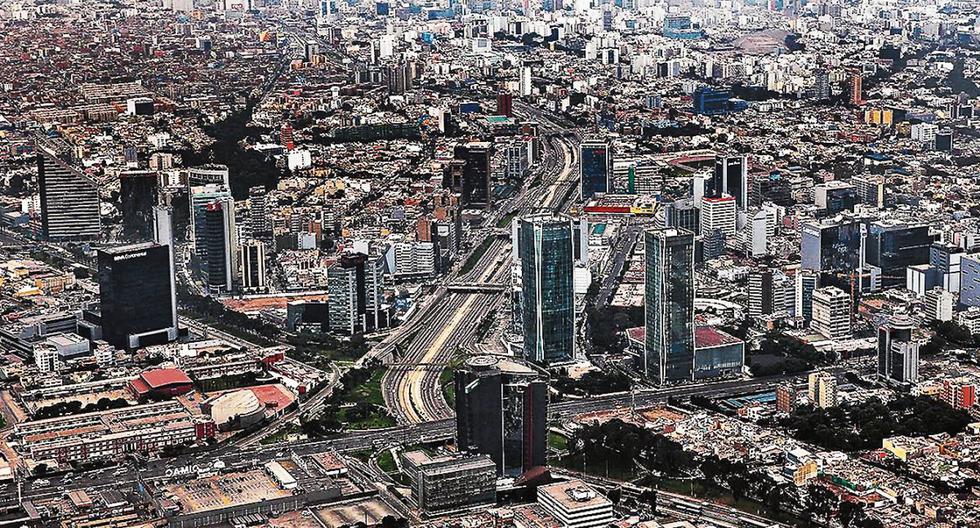Last Friday, the rating agency Standard & Poor’s Global Ratings (S&P) lowered the sovereign risk rating of the Peru and this was two steps away from losing its investment grade, that category that makes the country attractive for capital inflows and that allows the State and the financial system to be able to borrow with low interest rates. What effect can the recent reduction have on Peruvians?
When S&P made its announcement on Friday, March 18, it left Peru with the second lowest investment grade rating. It should be noted that being left out of this category would show Peru as a country with an unreliable ability to meet its financial obligations.
The factors that generated the rating agency’s decision are, on the one hand, the political stalemate, which, according to the agency, affects growth prospects and investor confidence, and on the other, the country’s dependence on external financing in the years 2020 and 2021, and the massive withdrawals from pension funds.
For S&P, both withdrawals from AFP and dependence on financing “affected the composition of Peru’s debt”, leading to a “currently more vulnerable debt profile”.
street effect
The first effect of the new sovereign rating was felt just three days later, when on Monday, March 21, as a result of the previous downgrade, S&P lowered the rating of seven financial entities by one notch: five banks, the Development Finance Corporation (Cofide) and the Mivivienda Fund.
The banks were BCP, MiBanco, Scotiabank, BBVA and Interbank. However, the agency specified that the outlook for all entities was stable. And as for the holding companies, it maintained the ratings for Credicorp and Intercorp Financial Services at BBB and BBB, respectively.
While this recent “downgrade” news may seem far-fetched to the average citizen, the reality is that it can hit your pocketbook just as much as rising interest rates on a consumer loan, auto loan, or even a mortgage would. loan to promote that business that was planned. That, without mentioning the medium-term effect on investment and employment.
For analysts, the decision of the Central Reserve Bank (BCR) to tighten monetary policy and increase its reference interest rate – which is a measure to make credit more expensive and mitigate inflation – are a factor that, together with the downgrade of the banks’ rating, could mean that for the latter entities more expensive to access financing. And if the financing that banks can access becomes more expensive, it is to be hoped that in the future so will the financing that reaches the end user.
The economist and columnist for Peru21, Felipe Morrisexplains: “This is going to imply that the banks are going to have a higher cost. They are going to have to raise their rates (…). All this affects a higher cost of money and, therefore, less economic activity”.
In this sense, while a medium or large company may have to pay higher rates for a loan in the medium term, the increase in such rates for a micro-enterprise or a small entrepreneur could put the future of the business in trouble.
“A medium-sized company may experience a slight increase in the cost of its financing, but it all adds up”Morris specifies.
To this is added a second aspect: the increase in the cost of money for the State itself. “The cost of debt service increases for the Government. So there will be fewer resources to invest. It’s a combination of effects.”remarks the economist.
double impact
Hugo Perea, chief economist at BBVA Research and columnist for Peru21explain what “a good credit rating benefits us all”but that a discount is an invoice that “all Peruvians” will have to pay.
In this context, he explains that when the credit rating improves or worsens, two types of impacts are seen on the citizen. The first is that financing for the Government becomes more expensive because when it takes on debt it will have to allocate more resources to pay interest, inhibiting the possibility that those same resources be allocated to infrastructure, improvement of services or social programs against poverty. .
“On the other hand, the rates at which any country borrows are the basic benchmark rates for other interest rates in the economy. When a Peruvian goes to request a mortgage loan, the bank looks at how much they lend to the Government over 10 years. And, for example, if they see that the citizen has a risk level of two points, then they give him the rate they give to the Government plus two points. If the rate they give to the Government goes up, that mortgage loan is going to be higher”explains the economist.
In other words, the problem for the country after the downgrade is that interest rates for the entire economy are going to be higherand not only those received by the Government.
“That means mortgage loans eventually at a higher cost (rate) and a higher cost of financing for companies. And this can also affect investment, because if you have less investment you have less growth in the long term”Perea warns. That is the bill of political uncertainty, the massive withdrawal of pension funds and the mismanagement of the authorities that all Peruvians will have to pay.
Did you know what?
- On March 18, S&P downgraded Peru’s long-term foreign currency sovereign credit rating from BBB+ to BBB, which meant that the country was left with the second lowest investment grade rating.
- “Peru’s rating downgrade reflects the erosion of the institutional assessment of the sovereign rating after a prolonged period of political instability, due to ongoing tensions between the Executive and Legislative branches,” the S&P agency said.

















